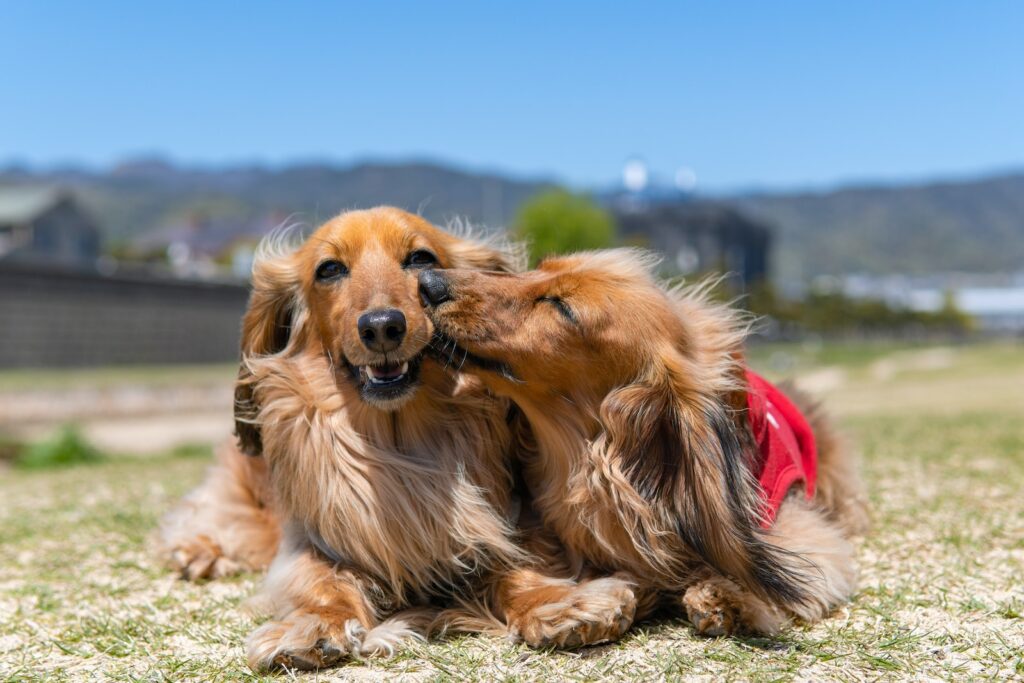Can Dogs Eat Granola? — No, They Can’t
Granola, a popular breakfast food for humans, may seem like a healthy treat to share with your furry friend. However, it is important to understand that dogs should not consume granola. While granola contains some ingredients that are safe for dogs, the overall composition and potential additives can be harmful to their health.
Can Puppies Eat Granola?
No, puppies should not consume granola either. Puppies have delicate digestive systems that are still developing, and introducing granola at a young age can cause gastrointestinal issues and potential allergies. It’s best to stick to a puppy-specific diet recommended by a veterinarian.
Why is Granola Harmful for Dogs?
Granola contains several ingredients that can pose risks to our canine companions. Here are the primary dangers associated with dogs consuming granola:
Allergies and Sensitivities
Dogs can develop allergies or sensitivities to various ingredients commonly found in granola, such as nuts, fruits, and certain grains. These allergic reactions can cause symptoms like itching, skin rashes, digestive issues, and even potential respiratory distress.
Excessive Sugar Content
Many commercially available granolas contain high amounts of added sugars, like honey or maple syrup, which can lead to weight gain, dental problems, and potential blood sugar imbalances in dogs. Consumption of sugary granola can increase the risk of obesity, diabetes, and dental decay in our furry friends.
Potential Toxicity
Some granolas may contain ingredients like raisins, chocolate, or artificial sweeteners like xylitol, which are toxic to dogs. Raisins and chocolate can cause kidney failure and poisoning symptoms, while xylitol can lead to a dangerous drop in blood sugar levels and liver damage.
Symptoms to Watch Out For After Dogs Consume Granola
- Vomiting or Diarrhea: Dogs who consume granola may experience gastrointestinal upset, resulting in frequent vomiting or diarrhea. It is essential to monitor their digestive health closely.
- Increased Thirst and Urination: The excessive sugar content in granola can lead to increased thirst and urination in dogs. If you notice a sudden change in their drinking or bathroom habits, it may be a sign of granola-related issues.
- Lethargy: If your dog becomes unusually tired or lacks energy after consuming granola, it could be an indication of an adverse reaction to the ingredients or additives.
Immediate Steps to Take if Your Dog Eats Granola
- Monitor their symptoms: Keep a close eye on your dog for any signs of distress, such as vomiting, diarrhea, or changes in behavior.
- Contact your vet: If you observe any concerning symptoms or if your dog has ingested a large amount of granola, it is best to consult your veterinarian for professional guidance.
- Offer water: Ensure that your dog has access to clean water to help flush out any potential toxins and to prevent dehydration.
Safe Alternatives to Granola
Although granola is off-limits for dogs, there are safe and healthy alternatives you can offer them as treats. Consider these options:
- Oatmeal: Cooked plain oatmeal provides a nutritious and easily digestible option for dogs. It can be served as an occasional treat.
- Bananas: Dogs can enjoy the natural sweetness and nutritional benefits of fresh bananas. Remember to remove the peel and serve in moderation, as bananas are high in natural sugars.
- Blueberries: These antioxidant-rich fruits make a delicious and safe snack for dogs. They can be offered fresh or frozen, as long as they are free from any added sugars or sweeteners.
Conclusion
In conclusion, granola is not suitable for dogs and should be kept out of their reach. Several ingredients in granola can be harmful to their health, including potential allergens and excessive sugars. If your dog accidentally consumes granola or experiences any related symptoms, it is important to take immediate action by contacting your vet and providing appropriate care. Remember to opt for safe alternatives to granola for your furry friend, ensuring their overall well-being and happiness.
Frequently Asked Questions
Can dogs eat homemade granola without raisins?
While homemade granola without raisins may seem like a safer option, it is still best to avoid offering granola to dogs altogether. Even without raisins, homemade granola may contain other potentially harmful ingredients and high sugar content that can negatively impact your dog’s health.
Are oats safe for dogs to consume?
Yes, plain cooked oats can be safe for dogs to consume in moderation. Oats are a good source of fiber and can support your dog’s digestive health. However, it’s important to serve them plain and avoid adding any sweeteners or toppings that may be harmful to dogs.
Can dogs have roasted nuts found in granola?
No, it is not recommended to give dogs roasted nuts found in granola. Roasted nuts often contain added salt, oils, seasonings, or coatings that may be detrimental to a dog’s health. Some nuts, like macadamia nuts or almonds, can also be toxic to dogs and should be avoided.
Is granola bar safe for dogs?
No, granola bars are not safe for dogs to consume. They often contain additional ingredients like chocolate, dried fruits, or artificial sweeteners, which can be harmful or toxic to dogs. It’s best to avoid sharing granola bars with your canine companion.






